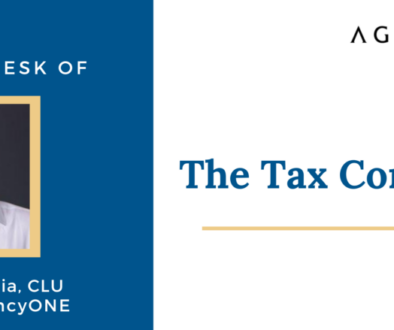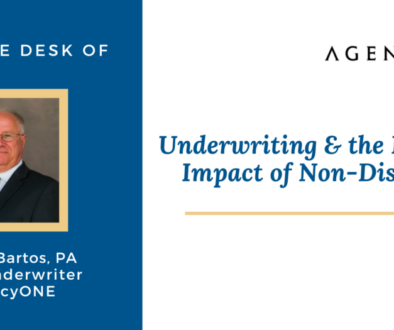I spent a few hours recently trying to find some no-load, commission-free term life insurance to buy for my wife and myself, because, why not? Why would I pay a commission to an insurance agent when I can be my own agent? According to the opinion of many in the financial world – why pay a commission to ANYONE?
The search process was mind-numbing. Let me share with you what I found out after I Googled “No-Load Life Insurance” or “Commission Free Life Insurance”.
I found a host of so-called “options” from companies\agencies that will remain unnamed, but essentially there are NO “no-load” insurance term products advertised online that would be obvious to ANYONE. I have heard anecdotally that there are a few, but I could not find any and I know more about insurance than your average consumer.
WHAT I FOUND
Most of what is available online looks very much like the following advertisement:

Do you know what happens when you click on the “Get A Free Quote for Term Life Insurance” link above? You get redirected to an agency’s site that asks a few questions in order to provide a quote and then asks for your name, phone number and email address. Under the ad’s “Display Quotes” link is a disclaimer that reads as follows:

Who wants to receive phone calls from a licensed life insurance agent? Right? |
|
Other sites offer alternatives such as the ad to the right which promises the opportunity “to speak to a licensed agent”. It does not say “to speak to a non-commissioned term insurance advisor”. |
|
THE BOTTOM LINE
Other sites with similar messages talk about providing multi-carrier platforms for quotes which include the usual suspects such as AIG, Prudential, Protective, Principal, Lincoln Financial, etc. They are ALL commission-based products. There are ZERO no load options.
The bottom line is that there is a lack of product available in the market to satisfy the “no-load, commission-free” market – much to the chagrin of the financial planning world. Most of the direct to consumer market, no load or not, is agency based and receives commissions. If a website says that the agent is “ non-commissioned” then the agency is getting paid the commission and, in turn, paying the licensed agent some sort of success fee or a salary plus a success fee for talking to prospective clients and completing the underwriting applications. IT IS STILL A COMMISSION BASED PRODUCT.
If a fee-only financial planner recommends that their client search for an insurance solution online and thinks that they will be able to find a no commission product, they are sadly mistaken. The life insurance industry is a commission-based industry by and large. Commission schedules are built into the pricing of insurance products for distribution purposes and those commission schedules are part of the filing process with each individual state’s Department of Insurance. Furthermore, there is an entire accounting discipline and guidance around how insurance companies report for these expenses – called Deferred Acquisition Cost accounting. It allows a company to defer the costs associated with acquiring a new customer over the term of the insurance contract.
Finally, in the past when Teachers Insurance and Annuity Association of American [TIAA] was still in the insurance business and sold fee-only product, their pricing was higher than comparable commission-based products – trust me, I checked. So, where is the logic in paying a higher price JUST because the product does not pay a commission? Another question that begs an answer – if commissions are SO BAD, how does one justify the fact that a no-commission product is more expensive than a regular commission-based product? Baffling! Isn’t no-load supposed to mean “less expensive” which presumably means “better consumer value”?
OTHER FACTORS TO CONSIDER
There are many other factors involved in insurance pricing and planning – conversion options, for example. This is the option that a client has to convert a term policy, without additional underwriting, to a permanent form of insurance. Is it in the best interest of the client to have a conversion option that lasts for the entire guaranteed period of the term policy, say 10 or 20 years? Does the conversion privilege allow conversion to ANY product offered by the carrier or only to a conversion product? Conversion products are built to price in adverse selection (when sick people convert because they would not otherwise qualify for insurance medically), which means that they are more expensive – much more expensive.
There is also the issue of underwriting. Is sub-standard pricing for a client on a no-load policy better than standard risk pricing on a commissioned policy because it does not pay a commission? A good insurance agent and agency will earn their commission by preparing and coaching a client through the underwriting process and advocating for the best possible underwriting offer from the market.
I totally agree with client best interest and with fiduciary responsibility. But, just because a licensed insurance agent is receiving a commission for the sale, underwriting, implementing, and servicing of a policy does not automatically mean it is counter to the client’s best interest. If financial advisors choose not to take a commission or feel they cannot because it would violate their fiduciary duty – I get it. These advisors should refer their clients who have identified risk management needs to a professional, licensed insurance agent who they have fully vetted. The licensed insurance agent and the advisor will collaborate with the full understanding that it is THE INSURANCE AGENT’S responsibility to provide guidance based on the clients best interest, AS IT RELATES TO INSURANCE, and help THE FINANCIAL ADVISOR comply with their fiduciary obligation to the client.
The real question is – should there be a commission disclosure and, if so, how should it be stated? When a consumer purchases a home, is the commission stated as a percentage of the mortgage payment or as a percentage of the value of the home sale? Why is life insurance so different? Let’s assume that a prospective client is a 40-year-old perfectly healthy man. The annual premium for a $1,000,000 30-year term life insurance policy is $1,100. The advisor is expected to make $990 upon placement of the policy (90% of the first year’s premium) and, with most insurance companies, NOTHING after that. If you compare this to a real estate transaction, we are stating the commission based on the annual mortgage payment, when in fact it amounts to less than 1% of the value of the policy. Why can a realtor charge a “fee” (which is in fact a commission) of 6% to sell a $1,000,000 home, but we expect insurance advisors to make less than 1%?
WHY THE DOUBLE STANDARD
Insurance is NOT expensive, nor is the commission paid by the insurance companies egregious. Consider a Realtor who, instead of charging 6% of the sales price of a home, informed their client that their “fee” would be 1% per year of the value of the home, including appreciation, for the life of the 30-year mortgage. Do the math. The total fees paid by the client over the 30-year period would be $405,681 assuming the value of the home increased by a mere 2% per year. If the home appreciated by 4%, the total fees would be $560,849! Who would work with that Realtor?
With that said, most wealth management advisors charge 1% of assets under management but insist that clients purchase no-load life insurance. I just don’t get it. There must be a better way to have the commission versus fee discussion while still protecting families and businesses from the financial devastation that results from death, disability or a long-term care event. In the meantime, the entire CFP (Certified Financial Planner) community is in an uproar about the CFP Board’s decision to drop the compensation-search function from its website, making it more difficult for consumers to find “fee-only” CFP advisors.







